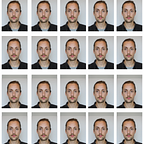I first decided to spend a few months in Athens at the beginning of 2020, with the intention of doing some volunteer work. I wasn’t sure what I’d find there, but also not particularly worried. A few months of chopping veggies in a community café and folding clothes in a free shop was fine by me. I was told before I moved that I’d be swept up into something, Athens is like that. And that, without a doubt, is what happened. A month into my stay Covid hit. We were locked into the country and the all-consuming mission of turning the café into a meal distribution service begun.
Athens still retains open wounds from the 2008 recession and continual European austerity measures. This means there is a lot of empty space and a broken city centre where shop fronts lie barren, old bars hollow and parks full of shit and burnt grass thanks to a mixture of the relentless Greek sun and municipal neglect. The Jekyll and Hyde road surfaces are a good representation for the municipal mindset — where serving local communities they’re as potholed as the moon, and where they’re deemed essential for the suburban bourgeois commutes, they’re as slick as black ice and full of SUVs speeding across the rotten core of the city to get to another upper-class neighbourhood on the other side. Certainly there’s money to be found in Athens, but thanks to shadowy economic policy and a far right government catering for its own, you’ll not see a crumb of it downtown.
It was this urban core that played the stage for our distribution organisation. Takeaway boxes were ordered, addresses and family sizes plugged into spreadsheets, and delivery routes devised for a team of cyclists, walkers and drivers to navigate the city with their essential cargo. Thanks to a zeitgeist of fear and Greece’s harsh lockdown measures, the pockmarked city became completely barren. The previously SUV laden main-streets serving as our private highways.
I’d always liked the idea of being a cycle messenger. The thrill of cycling in big cities, problem solving routes, and a pleasingly simple task of getting something essential from one place to another. In a dark way, this was a perfectly gentle baptising into the job. The roads were clear, the weather was perfect, and the motivation for getting your load from point A to point B was absolute. We were feeding people with no other option at a time when swathes of both governmental and NGO organisations had shut down in the face of a health catastrophe. You’d have thought that multimillion dollar funded UNHCR would have been looking after the vulnerable, but no, they were referring them to a small self-funded community organisation run by volunteers. Us.
It was pretty rough around the edges, but then what wasn’t during that first semi-global lockdown. Hours of spreadsheets and miles on the roads added up to about fifty-thousand meals per month at our peak. It sounds insane, those are numbers you’d expect from a huge municipal project. But in a strange way, those fifty-thousand meals felt much more personal, delivered to socially-isolating families, than the five-hundred meals per day had when the café was still open and buzzing. Where before it had been a crush and a rush around the food counter, now each household had a personality. I knew who responded to what kind of message, and I grew to expect and look forward to the quirks of each drop-off. Here a shy smile, there uncomfortably gushing thanks audio-translated through a cheap smartphone, and then another invitation for tea and conversation of lost homes of the past, and struggling lives of the present.
It was unbelievable, yet utterly understandable, how motivated everybody stayed throughout what was in retrospect an incredibly stressful and exhausting period. Both the psychological toll of making tough decisions to keep operational day in and day out, and the physical toll of feeling like your legs are blocks of lead spinning up the step hills of Exarchia. At that time in that environment, I remember not being able to conceive of being anywhere or doing anything else. It was so immediate, and so obvious that this was where injustice needed to be fought, and where help was needed.
Looking back now, I’m glad we could do what we did at the time, but saddened that it was just another footnote in a continual crisis. Months on nothing has changed. There is still lockdown in Greece, and people are still hungry. The kitchen is continuing to produce up to a thousand meals per day, and Europe’s answer is to spend more money on keeping people out than it would need to feed them. Acknowledging the vast undertaking that is the total systemic change required to make society equal for all, or even just to stop those most in need of help from starving to death, is utterly, utterly overwhelming. Who are we, and what the fuck are we doing.
